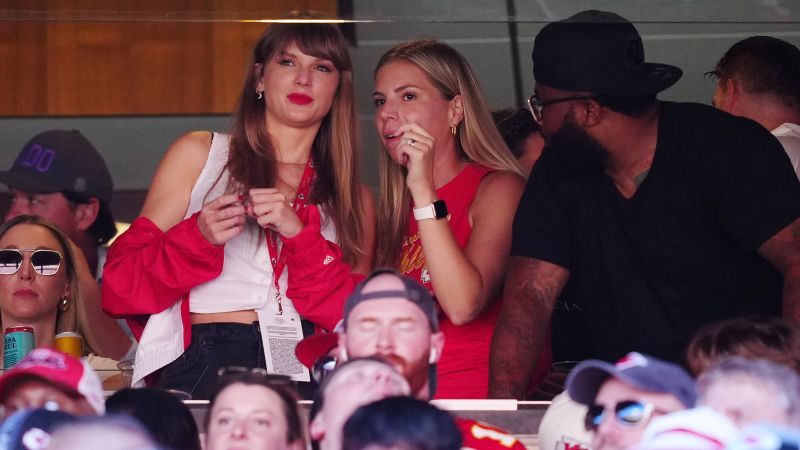- Eco Punks Gazette
- Posts
- Issue 4 - Influencer Ecosystems
Issue 4 - Influencer Ecosystems
Become an Eco Punk ambassador!?
EcoPunks.live is a great international platform to discuss various topics with people from very different cultural and business backgrounds.
Welcome to issue four! We’re building momentum, fueled in no small part by your positive feedback. You can always reach us via [email protected] or just reply to this email!
We’ve also got our first self-styled ambassador! Thank you Jens, and more reason for the rest of you to join us on LinkedIn where you too can legitimately add to your work (and life) experience.

LinkedIn makes it official
Upcoming Events
Oct 10th at 12noon EDT - Trust: Increasingly Scarce, But Still Relevant?
If some argue that we’re post-truth, are we also then post-trust? Our next salon will explore the role of trust, and the current scarcity of trust that many institutions face. How is trust earned, how is it lost, and where did it go?
Our salons are designed to combine smart conversation with improvised performance. We discourage preparation and encourage participation. If you’re reading this you’re not only smart enough, but perfectly positioned to join in the fun. Think of it as an opportunity to practice public speaking while also developing the art of the sound bite.
We’re currently using Zoom, recording them, and sharing clips. We ask that you RSVP via [email protected] as that allows us to get a sense of the numbers. If you have any questions about our salons, by all means, please ask, as we want you to join and have fun!
Notable Punk: Taylor Swift
Taylor Swift is a force of nature, and her fans, the Swifties, are themselves a force to be reckoned with. For example, check out their rebellion against the monopoly of Ticketmaster and Live Nation:
Many music fans and artists had complained before, and Taylor and her fans took matters into their own hands and changed an industry. Or what about that time when Taylor helped save democracy by asking her community in a single Instagram post to vote? Talk about leveraging influence and impacting culture, society and life:
This fall, Taylor has been taking it easy, enjoying herself, kicking her feet up for a bit and just hanging out. Amongst the very few things she did: She visited two football games of the Kansas City Chiefs, watched them from Travis Kelce’s box, did not provide a single comment to the media about it (he didn’t say much either), and the world will never be the same again.
Speculation about a potential romance between Swift and Kelce started when Travis’ brother mocked him on their podcast for having been to a Taylor Swift concert and having crafted a bracelet for her. Then, approximately a week later, Taylor showed up in Kansas City for the first time to watch a game from the Kelce box, and the world freaked out - news outlets across all genres covered the event.
And speculation about the couples’ impact started immediately. Romance as a business generator for the couple, sure, that’s obvious, but who would have thought that “Tay-Kay” might even have the weight to decide the upcoming American election? Some well informed people think so, and the Republican party is on the case already.
Aaron Rodgers, injured quarterback of the New York Jets and on the payroll of a Johnson & Johnson heir, called Kelce “Mr. Pfizer” because Kelce appears in a COVID vaccination promotion for Pfizer - wonderful!:
Even Mark Cuban chimed in, unable to resist the temptation to comment on the obvious - the financial benefit of the hype.

Again, Taylor Swift herself has yet to say a word about the relationship.
While all of this is fascinating with regards to its impact on the US and the intersection of sports and pop culture, as well as politics and society, it still fails to capture the full impact of the romance, which goes way beyond the US. Thanks to Taylor Swift, the NFL is suddenly front page news in countries (read: markets!) that the NFL tried but failed to conquer for decades, i.e. Europe. Just three weeks ago, nobody in Germany had heard of Travis Kelce. Football fans, or those that consider themselves as such, might have heard of Pat Mahomes, if at all, but that was as far as knowledge about the Chiefs kingdom went. Now, Travis Kelce has repeatedly been front page news (you don’t need to be able to read and understand German to get the gist of it):
The press, media and publicity situation in other countries is the same, and it remains to be seen how this will evolve. For now, we know: A young singer went to two football games, and the most misogynist of misogynist sports is breaking into new territory - men all around rejoice and get rich. And more people will vote and get vaccinated. Thank you, Taylor. How about one of those handsome German soccer players next? We could do with some support.
Here is a full timeline of the Swift-Kelce romance: A hype timeline of Travis Kelce and Taylor Swift's rumored romance - ESPN
You are welcome - Enjoy!
Worth Reading
The Ecosystem of Influencers that Defined Vine
The history of social media is largely subjective, as we all tend to use these platforms in different ways, and are exposed to different content and cultures.
However, the history of the social media industry is something that can be documented and argued over, as well as a source of lessons and insights.
Notorious and hard working social media journalist Taylor Lorenz has a new book coming out, and her employer, The Washington Post, has featured an excerpt that details the rise and fall of Vine.
Twitter owned the most important TikTok precursor, didn't know what to do with it, didn't like the creator culture it spawned, and refused to pay them. So the creators rebelled.
The untold inside story of how Vine withered: by @TaylorLorenz
— Will Oremus (@WillOremus)
8:23 PM • Sep 29, 2023
Of all the social platforms that sprang up in the 2010s, Vine was the most important. It saw the fastest growth, established itself as a cultural tastemaker, cultivated stars who toured the country to massive audiences, and ushered in the era of mobile video. The app birthed a generation of powerful creators who eventually came to dominate YouTube and the social landscape. Vine was TikTok before TikTok. The company’s only problem was itself.
Vine may have been one of the early examples of short, sharp videos that encourage repeat views, however it was also an early example of influencers working together to game the algorithm to their advantage.
The creators would work out who would share each video, as well as when each piece of content would be shared for maximum impact. Bachelor was growing the fastest, gaining nearly 100,000 followers a day, so he often took the lead. Making an appearance in one of his videos could be a major break, resulting in thousands of new followers.
The creators at 1600 Vine weren’t just gaming the app’s ranking algorithm; they were pushing the boundaries of the app itself.
However, the significance or impact of this kind of co-operative rebellion was even larger due to the mismanagement of the company as a whole. Rather than understand the role these influencers had within the larger Vine ecosystem, the company either ignored or sabotaged their homegrown talent.
“The company’s relationship with creators was nonexistent,” said Jeremy Cabalona, Vine’s former community manager. “I would tweet at them, tag them and share their work, but the overall policy from the founders was to ignore them.”
Vine leaders resented that these creators had taken over their network and were using the app to publish content they didn’t intend for it. “They were like, ‘We don’t like this. This is not what Vine is for,’” said Cabalona. “It wasn’t meant to be a performance platform or to get famous. It was to capture your life moments.”
This particular idea, that the intention of a platform can be maintained in spite of the actions and interests of users, remains a problem for social media platforms. Their failure to truly approach their users as belonging to an ecosystem is why we see pervasive distrust if not fear of the power these companies wield.
Vine’s demise was a story of talent mismanagement, or more specifically hostility towards their talent. This contrasts with YouTube, Instagram, and TikTok, who have all aggressively paid and retained their top talent.
For more on Taylor’s book and her work check out this recent interview:
The Rise of AI-Powered Influencers
In recent years, the influencer marketing industry has witnessed the emergence of AI-powered influencers. Some of these virtual personalities have gained significant popularity and have become an integral part of the larger influencer ecosystem. AI-powered influencers are computer-generated characters that possess human-like qualities and interact with their audience through social media platforms.
One of the key reasons behind the rise of AI-powered influencers is their ability to cater to the evolving demands of brands and consumers. These virtual influencers can be customized to fit specific brand aesthetics and values, allowing companies to maintain complete control over their messaging and brand image.
Traditional human influencers now face competition from these virtual counterparts, as AI-powered influencers offer several advantages. For instance, AI-powered influencers can be programmed to analyze data and provide valuable insights to brands, helping them make informed marketing decisions. However, it is important to note that human influencers still hold a unique position in the influencer ecosystem, as they possess authenticity and relatability that AI-powered influencers may struggle to replicate.
However, that doesn’t prevent a hybrid model, in which influencers employ automated tools, or alternatively, that of AI influencers who resemble or are licensed to impersonate celebrities.
Whether someone is a bot or not seems increasingly irrelevant compared to whether they’re entertaining or not. We’ll keep an eye on how this dynamic within the larger influencer industry evolves. If you’re interested in more, check out this report.

Prompt: Punks discussing solutions to climate change while a storm rages.
Hey! You made it to the end! Now why not share this issue with your frenemies?
:quality(85):upscale()/2022/11/17/040/n/1922283/8e31e4f56376ca722612f1.69865899_.jpg)








Reply